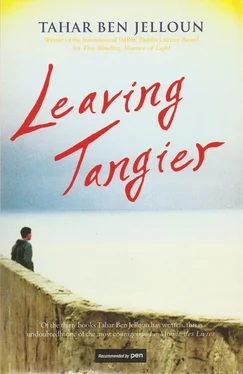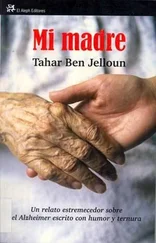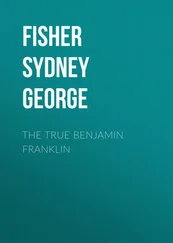Tahar Ben Jelloun - Leaving Tangier
Здесь есть возможность читать онлайн «Tahar Ben Jelloun - Leaving Tangier» весь текст электронной книги совершенно бесплатно (целиком полную версию без сокращений). В некоторых случаях можно слушать аудио, скачать через торрент в формате fb2 и присутствует краткое содержание. Год выпуска: 2009, Издательство: Arcadia Books, Жанр: Современная проза, на английском языке. Описание произведения, (предисловие) а так же отзывы посетителей доступны на портале библиотеки ЛибКат.
- Название:Leaving Tangier
- Автор:
- Издательство:Arcadia Books
- Жанр:
- Год:2009
- ISBN:нет данных
- Рейтинг книги:5 / 5. Голосов: 1
-
Избранное:Добавить в избранное
- Отзывы:
-
Ваша оценка:
- 100
- 1
- 2
- 3
- 4
- 5
Leaving Tangier: краткое содержание, описание и аннотация
Предлагаем к чтению аннотацию, описание, краткое содержание или предисловие (зависит от того, что написал сам автор книги «Leaving Tangier»). Если вы не нашли необходимую информацию о книге — напишите в комментариях, мы постараемся отыскать её.
Leaving Tangier — читать онлайн бесплатно полную книгу (весь текст) целиком
Ниже представлен текст книги, разбитый по страницам. Система сохранения места последней прочитанной страницы, позволяет с удобством читать онлайн бесплатно книгу «Leaving Tangier», без необходимости каждый раз заново искать на чём Вы остановились. Поставьте закладку, и сможете в любой момент перейти на страницу, на которой закончили чтение.
Интервал:
Закладка:
page 47
Lighter than the djellaba, the gandoura is an ample, almost sleeveless robe that sometimes serves as an undergarment in East Africa; babouches are Turkish slippers.
page 61
This is sura 2, verse 255, the Ayat al-Kursî, the celebrated Verse of the Throne:
Allah! There is no god but Him, the Living, the Eternal. Neither slumber nor sleep overtakes Him. To Him belongs all that is in the Heavens and the earth. Who can intercede with him except by His permission? He knows what is before them and what lies behind them, and they can grasp only that part of His knowledge which He will. His Throne embraces the Heavens and the earth, and it tires Him not to uphold them both. He is the All-high, the All-glorious.
page 69
The hajj takes place from the eighth day to the twelfth day of the twelfth month of the Muslim lunar calendar, and the end of the pilgrimage is the three-day worldwide celebration of Aïd el-Kebir, ‘the great festival,’ also known as Aïd el-Adha, ‘the festival of sacrifice,’ during which an animal is slaughtered to commemorate Abraham’s willingness to sacrifice his eldest son at God’s command.
page 70
The tarboosh is a red cloth or felt cap, a kind of fez, usually sporting a blue silk tassel and sometimes worn as the inner part of a turban.
page 78
Islamic invaders began occupying and settling large areas of southern Spain in the early eighth century, and modern travellers in Andalusia still marvel at the surviving wonders of their civilization. By the fourteenth century, however, the reconquista — the wars of reconquest waged by the Catholic monarchy — had reclaimed almost all of Muslim Spain from los moros — the Moors. In 1492, the year Columbus planted the flag of Isabella of Castile and Ferdinand II of Aragon in the New World, his patrons drove Mohammed XI, the last sultan of Granada, from his besieged city, ending Moorish rule in Spain. As he fled to Morocco, the sultan bade farewell to Granada at a spot now known as the Moor’s Last Sigh.
page 86
A jabador is an embroidered vest once favoured by the Arab aristocrats of Andalusia; saroual are baggy, calf-length trousers fastened at the knees and worn under the djellaba.
page 96
The khamsa (from the Arabic word for ‘five’) is a symbol or design depicting an inverted hand. Called the Hand of Fatima by Muslims and the Hand of Miriam by Jews, this ancient talisman is often placed at the front door of a dwelling to ward off the evil eye.
page 98
Near the Grand Socco rises the brilliantly colored minaret of the Sidi Bou Abid Mosque, set off by the luxurious Mendoubia gardens with their eight-hundred-year-old trees and the former palace and offices of the Mendoub, the sultan’s representative during the international administration of Tangier, which lasted from the Treaty of Algeciras in 1906 to Moroccan independence in 1956.
page 100
The first sura of the Koran is the Fatiha, ‘the Opening’:
In the Name of God, the Merciful, the Compassionate.
Praise be to God, Lord of the Universe,
The Merciful, the Compassionate,
Sovereign of the Day of Judgement!
You alone we worship, and to You alone we turn for help.
Guide us to the straight path,
The path of those whom You have favoured,
Not of those who have incurred Your wrath,
Nor of those who have gone astray.
page 115
In Tahar Ben Jelloun’s 1978 novel, Moha the Mad, Moha the Wise, Moha is a holy fool, a voice from the crowd who speaks like a traditional North African Arab storyteller: he recounts the country, its mistakes, hopes, and dreams. Moha is the voice of exclusion. Here is a sampling of texts that illuminate Moha’s role in Leaving Tangier.
Moha took the path of the tree. To love the tree. […] It’s a dwelling for silence, a little palace where death bites its own tail. My special place for absence. […] The forest! But the forest is gone. There is neither forest nor desert, only a plain planted with zinc and broken mirrors. Ever since it grew rich, the city has spewed out poor men who wash up on the outskirts of life. They are my children. […] If you meet my children, don’t run away. Let them rob you just a little. It’s in a worthy cause. Then laugh along with them. […] You will thus deserve my blessing and perhaps a piece of the tree, a bit of paradise. […] I bear within me a rage of the utmost purity ever since the French wounded our land almost a century and a half ago. […] Me, I’m a hundred and forty years old. I’ve seen everything, known everything. I’m only passing through. […] Why does death sail away with us to the horizon? […] Even when they lock me up, I press on. […] Anyway, I’m not dead. How can one die when one has never existed? I have no name. I am hypothetical. I’m from nowhere. From a hill. A plain. The vague horizon and the mint of time. That’s what they’ve decided! Moha has never existed! What a lovely mirage for their pale desert. It’s true, I have no identity papers … and how could I have any? No, I’m not talking about corruption, but I don’t intend to fill in any blanks; I cannot write anything on the dotted lines… Neither date nor place of birth. I have three hundred and fifty-two names, one name for each moon. My date is written in the sky. Go read in the labyrinth…
page 124
General Mohammed Oufkir, Morocco’s much-feared chief of police, tried to seize power in 1972 by having King Hassan II’s plane shot down. After the coup failed, Oufkir was liquidated and his wife and six children — one of whom was only three years old — were imprisoned under appalling conditions. In 1987 several of the children escaped and managed to contact French journalists before being rearrested. The family was finally freed in 1991.
page 130
Nâzim Hikmet (1902–1963) remains Turkey’s most famous and revered poet at home and abroad, acclaimed for the modern stylistic innovations he brought to Turkish literature as well as for the lyrical power of the novels, plays, and poetry through which he mounted an impassioned crusade against injustice and oppression in Turkey and throughout the world. Persecuted for decades by the Republic of Turkey for his Marxist-Leninist convictions, he spent nearly two-thirds of his adult life in prison or in exile, finally dying of a heart attack in Moscow after long years of separation from his beloved country and family.
While imprisoned, Hikmet wrote a massive work intended to be his masterpiece: Human Landscapes , an extraordinary depiction of his homeland and the turmoil of the twentieth century, and although the Turkish government cruelly suppressed his poetry for nearly half his career, this collection of poems is today considered to be one of the greatest patriotic literary treasures of the Turkish people.
page 179
A marabout is a Muslim hermit, holy man, or the leader of a sect, especially among the Berbers and Moors in Northern Africa.
page 191
Mohammed ibn Abd al-Wahhab (1703–1792) was the founder of Wahhabism, a branch of Sunni Islam that seeks to restore the supposed theological purity of the Muslim faith during the first three generations of Islam, a purity grounded solely upon the Koran and the Hadith (a kind of appendix to the Koran containing traditions related to Mohammed). Ibn al-Wahhab reintroduced Sharia — Islamic law — to what is now Saudi Arabia, where Wahhabism has become the dominant theology. Heeding their teacher’s call for jihad against ‘polytheistic’ Islam, modern-day Wahhabis violently oppose what they call perversion, superstition, and heresy in the Muslim faith.
Читать дальшеИнтервал:
Закладка:
Похожие книги на «Leaving Tangier»
Представляем Вашему вниманию похожие книги на «Leaving Tangier» списком для выбора. Мы отобрали схожую по названию и смыслу литературу в надежде предоставить читателям больше вариантов отыскать новые, интересные, ещё непрочитанные произведения.
Обсуждение, отзывы о книге «Leaving Tangier» и просто собственные мнения читателей. Оставьте ваши комментарии, напишите, что Вы думаете о произведении, его смысле или главных героях. Укажите что конкретно понравилось, а что нет, и почему Вы так считаете.












